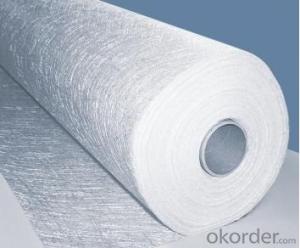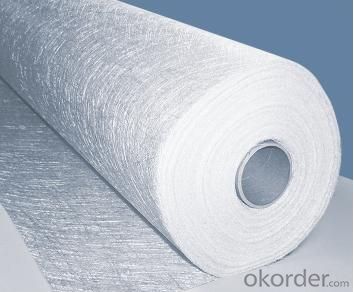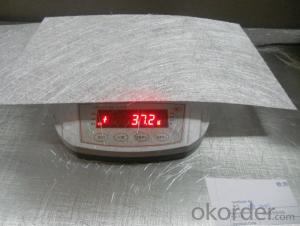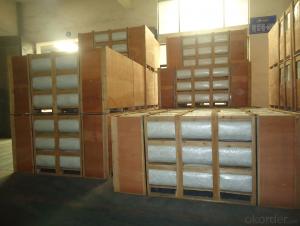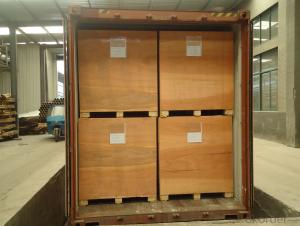Fiberglass Mat Tissue e-glass Chopped Strand Mat 3000mm
- Loading Port:
- Shanghai
- Payment Terms:
- TT or LC
- Min Order Qty:
- -
- Supply Capability:
- 10000MT m²/month
OKorder Service Pledge
OKorder Financial Service
You Might Also Like
1.Breif Introduction
Chopped strand mat with width 3000mm
2.Main Features
With Excellent compatibility with resin,heating resistance,Faster and well wet-out
Chopped strand mats are made of chopped strands of 50mm in length,which are randomly dispersed and bonded together by the polyester binder in powder or emulsion.
Chopped strand mats are mainly used in FRP fields,such as hand lay-up,filament winding and molding process. The typical products are panels,tanks,boats,automotive parts,cooling towers,pipes and so on.
3.Specifications
Glass type: E-glass and C-glass Chopped Strand Mat.
Bond type: Powder or Emulsion.
Roll Width: 3000mm.
Roll weight/: 180kgs.
Normal types :28kgs.30kgs.35kgs.
4.FAQ
Q: Which knid of payment terms can you accept?
A: We can accept 30% prepayment, 70% payment before shippment. LC is also accepted
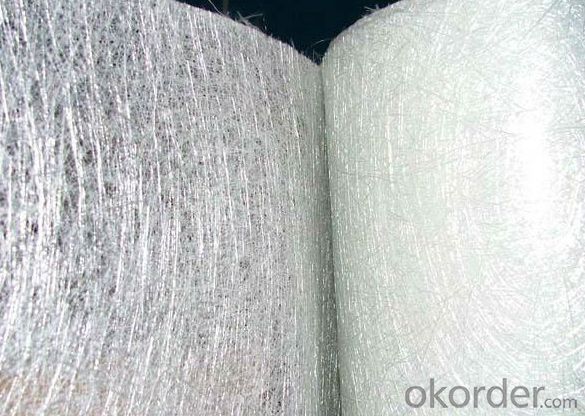
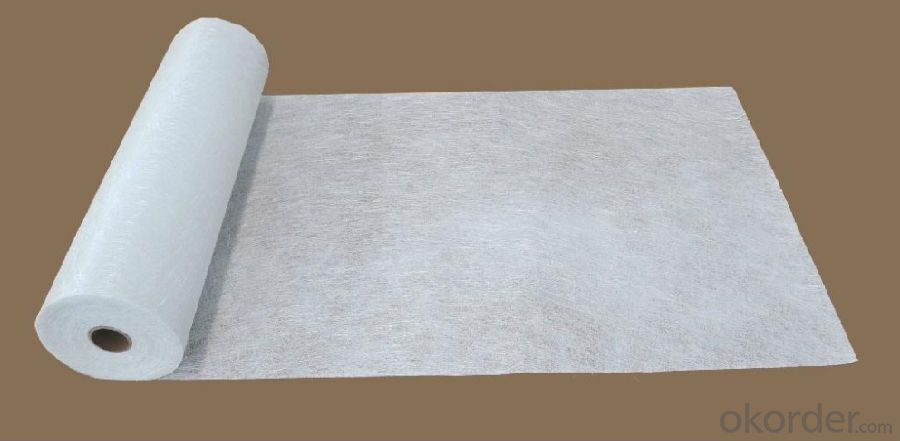
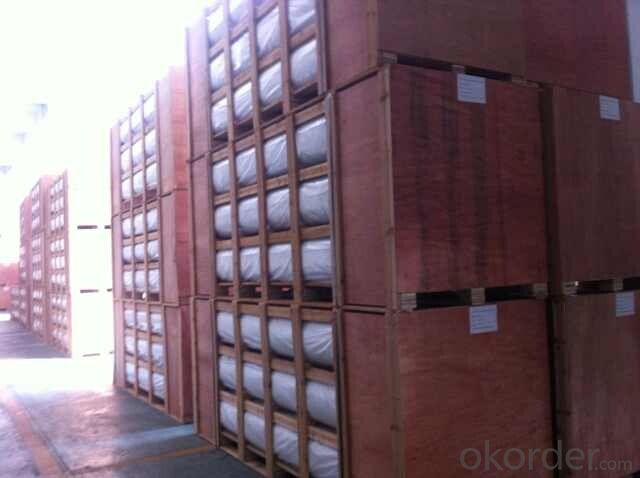
- Q: Is fiberglass mat tissue fire-resistant?
- No, fiberglass mat tissue is not inherently fire-resistant. While fiberglass itself is a non-combustible material, fiberglass mat tissue is typically combined with a binder or resin that may be flammable. However, specialty fiberglass mat tissue products are available that have been treated with fire-resistant coatings or additives to enhance their fire resistance properties. These treated materials can provide improved fire resistance and are commonly used in applications where fire safety is a concern, such as in certain construction or insulation materials. It is important to review the specific product specifications or consult with the manufacturer to determine the fire resistance capabilities of a particular fiberglass mat tissue.
- Q: Can fiberglass mat tissue be used for HVAC ducting?
- HVAC ducting can indeed utilize fiberglass mat tissue. This lightweight substance is formed by bonding glass fibers with resin. Its exceptional thermal insulation qualities render it suitable for HVAC systems that prioritize temperature control. Moreover, fiberglass mat tissue boasts resistance against moisture and chemicals, assuring long-lasting durability in ducting applications. Its installation is hassle-free, and it can be tailored to fit varied duct sizes and shapes. All in all, fiberglass mat tissue emerges as a dependable and effective option for HVAC ducting.
- Q: Is fiberglass mat tissue suitable for insulation in hospitals?
- Indeed, insulation in hospitals can be accomplished using fiberglass mat tissue. This material, being lightweight and affordable, exhibits remarkable thermal insulation properties. By effectively controlling temperature and diminishing heat dissipation, it proves to be an optimal selection for hospitals, where sustaining a comfortable and regulated atmosphere is of utmost importance. Moreover, fiberglass mat tissue is non-flammable and mold-resistant, guaranteeing a safe and sanitary environment in healthcare facilities. Its durability and straightforward installation further enhance its practicality as a choice for insulation in these settings.
- Q: What is the expected lifespan of fiberglass mat tissue?
- The expected lifespan of fiberglass mat tissue can vary depending on several factors such as the quality of the material, the conditions it is exposed to, and the specific application it is used for. However, on average, fiberglass mat tissue is known for its durability and long lifespan. When properly manufactured and installed, fiberglass mat tissue can last for several decades. It is resistant to rot, corrosion, and many chemicals, making it suitable for various industries and applications. Additionally, fiberglass mat tissue is known for its strength and ability to withstand high temperatures. However, it is important to note that exposure to harsh environmental conditions, such as extreme temperatures, UV radiation, and moisture, can potentially degrade the material over time. Regular maintenance and proper care can help extend the lifespan of fiberglass mat tissue. Overall, while it is challenging to determine an exact expected lifespan for fiberglass mat tissue, it is generally considered to be a long-lasting material when used and maintained correctly.
- Q: Can fiberglass mat tissue be used for making lightweight countertops?
- Yes, fiberglass mat tissue can be used for making lightweight countertops.
- Q: What is the thermal conductivity of fiberglass mat tissue?
- Fiberglass mat tissue typically exhibits a low thermal conductivity, which falls within the range of 0.03 to 0.05 W/m·K. Consequently, it serves as an excellent insulator, effectively impeding the flow of heat. Its favorable insulative properties render it suitable for various applications, including thermal insulation in buildings, industrial equipment, and appliances.
- Q: Can fiberglass mat tissue be used for mold-making?
- Typically, fiberglass mat tissue is not used for mold-making. This lightweight material is made up of randomly oriented glass fibers that are bonded together with a binder. It is commonly utilized in the insulation, construction, and automotive industries for reinforcement purposes. When it comes to mold-making, other materials like silicone, latex, or polyurethane are more commonly employed. These materials possess the necessary properties to create molds that are flexible and capable of reproducing intricate details accurately. Moreover, they are user-friendly and can be poured or brushed onto the original object to form a mold. Conversely, fiberglass mat tissue lacks the flexibility and accuracy required for mold-making. It is not designed to easily conform to complex shapes or capture fine details. Additionally, it may not provide the desired level of flexibility needed to safely remove the original object from the mold without causing damage. Therefore, it is advisable to utilize specific mold-making materials that are specifically designed for this purpose instead of attempting to employ fiberglass mat tissue.
- Q: What are the applications of fiberglass mat tissue?
- Fiberglass mat tissue, a versatile material, is utilized in a multitude of industries. Some notable applications include: 1. Construction and Building Materials: Within the construction industry, fiberglass mat tissue serves as a reinforcement material. It is commonly employed in the production of roofing shingles, insulation materials, and wall coverings. The robust and durable nature of fiberglass mat tissue enhances the structural integrity of buildings and bolsters their resistance to external elements such as wind, moisture, and temperature fluctuations. 2. Automotive Industry: The automotive sector extensively utilizes fiberglass mat tissue for manufacturing components like door panels, headliners, trunk liners, and interior trim parts. Due to its lightweight and high strength properties, fiberglass mat tissue is an ideal material for reducing the overall weight of vehicles while maintaining their structural integrity. 3. Marine Industry: The marine industry relies heavily on fiberglass mat tissue for constructing boat hulls, decks, and other structural components. The corrosion-resistant characteristics of fiberglass mat tissue make it well-suited for marine applications where exposure to water and harsh weather conditions is common. 4. Pipe Manufacturing: Fiberglass mat tissue is employed in the production of fiberglass reinforced pipes. These pipes find applications in various industries, including oil and gas, chemicals, and water management. The high strength and corrosion-resistant properties of fiberglass mat tissue make it an excellent choice for manufacturing pipes capable of withstanding high pressure and harsh chemical environments. 5. Filtration Systems: Fiberglass mat tissue plays a vital role in the production of air filters and liquid filtration systems. The fibrous structure of the material enables efficient filtration by trapping dust particles, dirt, and other contaminants. This makes fiberglass mat tissue the preferred choice for applications requiring high-efficiency filtration, such as HVAC systems, industrial air filters, and water treatment plants. In conclusion, fiberglass mat tissue finds extensive and diverse applications in industries ranging from construction and automotive to marine and filtration systems. Its unique properties make it an invaluable material for enhancing structural integrity, reducing weight, and improving performance across various sectors.
- Q: What is the shelf life of fiberglass mat tissue?
- The shelf life of fiberglass mat tissue can vary depending on several factors such as storage conditions, packaging, and the specific manufacturer's recommendations. Generally, fiberglass mat tissue can have a shelf life of around one to two years if stored in a cool, dry place and unopened. However, it is important to note that over time, the material may degrade or lose its physical properties, which can affect its performance and suitability for use. Therefore, it is advisable to always check the manufacturer's guidelines or consult with them directly for the most accurate information regarding the shelf life of a particular fiberglass mat tissue product.
- Q: Can fiberglass mat tissue be used for insulation in research laboratories?
- Yes, fiberglass mat tissue can be used for insulation in research laboratories. Fiberglass mat tissue is a common material used for thermal and acoustic insulation due to its excellent insulation properties. It is highly resistant to heat, moisture, and chemicals, making it suitable for laboratory settings. Additionally, fiberglass mat tissue is lightweight and easy to install, allowing for quick and efficient insulation in research laboratories. Its low thermal conductivity helps to maintain stable temperature conditions, ensuring optimal conditions for experiments and reducing energy consumption. Therefore, fiberglass mat tissue is a viable choice for insulation in research laboratories.
Send your message to us
Fiberglass Mat Tissue e-glass Chopped Strand Mat 3000mm
- Loading Port:
- Shanghai
- Payment Terms:
- TT or LC
- Min Order Qty:
- -
- Supply Capability:
- 10000MT m²/month
OKorder Service Pledge
OKorder Financial Service
Similar products
Hot products
Hot Searches
Related keywords
